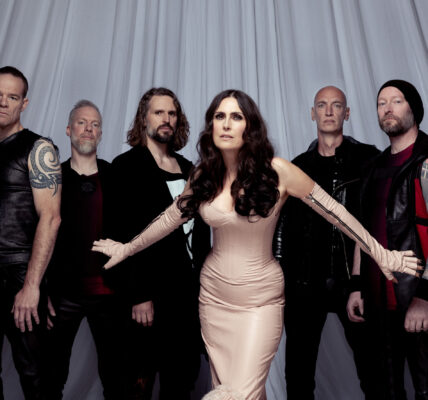Ricky Gervais is a name that elicits strong reactions. Love him or hate him, the British comedian, writer, actor, and director has made an indelible mark on the world of comedy and entertainment, with a career spanning decades and a reputation for pushing boundaries, challenging norms, and, most controversially, speaking his mind with unwavering conviction. Whether he’s skewering celebrities, politics, or the very concept of “good taste,” Gervais has always been unwilling to stop talking—about anything, anywhere, and to anyone. His comedy is rooted in an uncompromising honesty that has earned him as many fans as it has critics.
At the heart of Gervais’ career is the understanding that for better or worse, words have power—and he has never been one to shy away from using them to provoke, challenge, or simply entertain. But Gervais’ relentless verbosity, combined with his gift for controversy, raises the question: Why does he persist in being this way? Why is Ricky Gervais so unwilling to stop talking? And more importantly, why do we keep listening?The Beginnings of a Talker
Ricky Gervais was born in Reading, England, in 1961, to a working-class family. Early on, he wasn’t the stereotypical comedian—the loudmouth or the class clown—but rather someone who seemed to observe the world with a mix of bemusement and mild frustration. He studied philosophy at the University College London, a discipline that would later inform much of his comedic output. In fact, many of his most memorable moments and routines have a strong philosophical undertone—an attempt to examine the absurdity of life, death, and everything in between.
Before breaking into comedy, Gervais worked in a variety of roles, from a manager at a record label to a production assistant at a radio station. But it wasn’t until he became a stand-up comedian and later co-created the groundbreaking sitcom *The Office* that he truly found his voice in the entertainment world.
In *The Office*, Gervais’ portrayal of David Brent, the cringeworthy and often insufferable regional manager of Wernham Hogg paper company, is one of the most iconic characters in television history. Brent’s narcissistic need for approval, combined with his inability to grasp social nuances, made him a source of both comedy and discomfort for viewers. Gervais had already begun his career of speaking truth to power and pushing the limits of what was acceptable on screen. Through Brent, Gervais gave voice to a character who, much like the comedian himself, could not stop talking. Relentless On-Screen and Off: Gervais’ Signature Style
Ricky Gervais’ style of comedy is distinctive not only for its unabashed irreverence but also for the fact that Gervais rarely shies away from controversy. Over the years, he’s become known for his sharp wit, biting sarcasm, and a certain level of discomfort that emanates from his humor. His comedy often dwells in the uncomfortable spaces between truth and tact, with a tendency to expose societal hypocrisies in a way that can feel as illuminating as it is cringe-worthy.
Take, for example, *The Office* again. In its portrayal of office culture, it didn’t simply show the funny, awkward dynamics between coworkers—it also highlighted the failures of human interaction and the absurdity of corporate life. Gervais’ characters were often tragic figures, driven by delusions of grandeur, making their awkwardness and failures all the more painful. Yet this focus on the less glamorous parts of life—the things people usually avoid talking about—made the show resonate with millions.
When Gervais moved on to projects like *Extras*, *The Ricky Gervais Show*, and *After Life*, he continued to exploit the same themes: vanity, existential angst, and the absurdities of life in a modern, celebrity-obsessed world. He was never afraid to address uncomfortable truths, often by forcing his characters to confront the limits of their own self-awareness. This included tackling the concept of fame itself, something Gervais, by his own admission, has always had a love-hate relationship with.
As a host of the Golden Globes, Gervais repeatedly used the stage to lambast Hollywood’s most cherished celebrities, often making them the butt of cruel jokes about their privilege, absurdities, and hypocrisies. His sharp, no-holds-barred delivery often made for memorable moments, such as when he mockingly declared, “You’re all so lucky to be here tonight. You’re all so lucky to be in a room full of the best actors in the world… except for those of you who were in *Cats*.”
The willingness to make jokes at the expense of those who control the entertainment industry made Gervais an unlikely folk hero for those tired of the celebrity worship that pervades modern media. However, it also earned him a significant amount of ire from the same people. Gervais has often said that his humor is meant to reflect the absurdity of fame and the unrealistic expectations placed on entertainers—yet his constant defiance of social norms and comedic boundaries continues to alienate some, while endearing him to others.
The Power of the Unapologetic
One of the key factors behind Ricky Gervais’ refusal to stop talking is his unyielding confidence in the power of his voice. Over the years, he’s cultivated an image as a provocateur, someone willing to speak his mind no matter the consequences. This refusal to be cowed by outrage or public criticism has earned him a reputation as one of the last truly fearless voices in comedy.
Gervais’ approach to controversy is often more about the message than the shock value. Take, for instance, his outspoken views on organized religion. He has long been a vocal critic of religion, calling himself an atheist and using his platform to discuss what he sees as the dangers of belief systems that rely on faith over reason. In his stand-up special *Humanity* (2018), Gervais addresses the absurdities of religious belief with the same biting humor that made his earlier work so beloved. He’s unafraid to challenge not just religious institutions, but social norms in general.
And it’s not just religion that Gervais takes on. He has regularly weighed in on topics such as politics, identity, and social justice—often with a cynical, irreverent twist that ensures his opinions remain provocative. For example, Gervais has been unrelenting in his criticism of “cancel culture,” calling out what he perceives as a tendency for society to become overly sensitive and punitive in response to off-hand remarks or old comments resurfacing. Gervais has argued that people should be allowed to make mistakes, change, and learn from their past without being permanently vilified. In this, Gervais positions himself as a champion of free speech and intellectual autonomy.
But this unapologetic stance has come with a cost. Critics argue that Gervais often crosses the line between edgy humor and offensive behavior, particularly when he touches on sensitive topics like race, gender, and disability. His defenders, on the other hand, argue that Gervais simply doesn’t adhere to the social conventions that so many others are beholden to, and that this refusal to conform is a cornerstone of his comedic genius.
For Gervais, the willingness to speak freely is a personal and artistic decision—one rooted in his philosophy that comedy should challenge, disturb, and encourage us to think critically about the world around us. It’s also a way of asserting that he will not be silenced by the changing tides of public opinion.
The Relentless Drive: Why Gervais Won’t Stop Talking
What drives Ricky Gervais to continue speaking out, even in the face of significant backlash? For one, he appears to thrive on the energy that controversy generates. He’s often said that he doesn’t perform for applause or to make people like him, but to make them think and react—whether positively or negatively. The fact that Gervais has managed to sustain a successful career despite his refusal to play it safe suggests that he understands his audience deeply and knows that genuine engagement is more valuable than easy praise.
Moreover, there is a sense of personal catharsis in Gervais’ work. Many of his routines and interviews come off as deeply personal meditations on his own beliefs, fears, and existential questions. His comedy is not just a way of making others laugh but also a means of coping with the absurdity of life. Gervais’ willingness to express the unspoken thoughts that many people hold but don’t dare articulate is a big part of why his comedy resonates with so many. His material often feels like a conversation with the audience, in which he airs the uncomfortable thoughts that others might keep hidden.
Additionally, Gervais is unafraid of alienating people. His belief in artistic freedom and his rejection of conventional morality in comedy are central to his identity. He has said that his job as a comedian is to say things that others might think but are too afraid to say. In this sense, Gervais sees himself as a kind of comedic “truth-teller” who refuses to bow to political correctness or the expectations of the mainstream.
A Legacy of Relentlessness
Ultimately, Ricky Gervais’ refusal to stop talking stems from a deep-seated commitment to personal and artistic freedom. It is this same drive that has fueled his success as a comedian, writer, and public figure. His career, while polarizing, has also been one of consistent reinvention and fearless self-expression. In a world increasingly obsessed with managing perceptions, curbing offense, and adhering to polite conventions, Gervais remains a stubborn, unrepent




